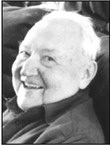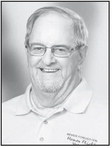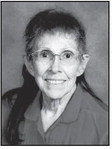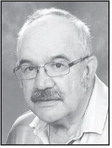David P. Armbrust


1936-2023
David P. Armbrust, 86, of Medford, died Sunday, May 21, 2023.
A memorial mass will be held at 11 a.m., Friday, May 26 at Holy Rosary Catholic Church in Medford with Fr. Patrick Mc-Connell officiating. Military honors given by the Medford Area Military Honors Team will immediately follow the service at the church. Burial will be at Holy Rosary Catholic Cemetery.
Visitation will be from 9 a.m. until the time of service at 11 a.m. Friday at the church.
David was born Oct. 6, 1936 in Medford to William and Agnes (Strachota) Armbrust. He graduated from Medford High School in 1955.
Following high school, David enlisted in the U.S. Navy serving from January 1955 until his honorable discharge in December 1958.
While on military leave, David met JoAnn Faude. The two were united in marriage on June 10, 1961 and together had three children.
David worked as a butcher at his family’s meat company, Armbrust Meats for 30 years. He then went to work for Weather Shield until his retirement. He also was a fireman for the Medford Fire Department for 23 years.
He was an outdoorsman who enjoyed hunting and fishing. Due to JoAnn’s influence as a country music singer and guitarist, he also grew to enjoy listening to country music.
He is survived by his wife, JoAnn of Medford; children; Judy (Dave) Westermeier of Tomahawk, Peter Armbrust of Stetsonville, Debra Armbrust of Scottsdale, Ariz.; six grandchildren, Amanda Raster, Mathew (Autena) Raster, Megan (Bryan) Gusman, Adam Westermeier, Camren (Kylee) Armbrust, Gabrielle Halopka; seven great-grandchildren, Bryan Jr., Chandler and Denzel Gusman, Madeleine and Wyatt Raster, Emmett and Myles Armbrust; and many nieces and nephews.
He was preceded in death by his parents; five brothers; and one sister.
Hemer-Pickerign Funeral & Cremation Services of Medford and Rib Lake is serving the family. Online condolences can be left at www.hemerfuneralservice. com.
Paid Obituary 137077



